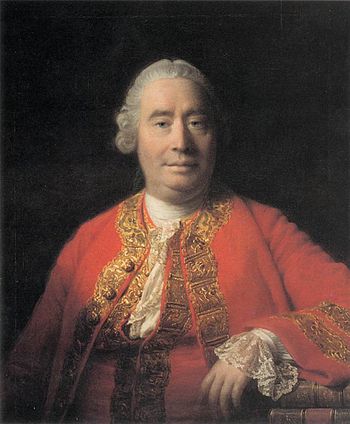
Science [Latin scientia = knowledge] (revised Aug 17 2016)
Hard and Soft
Science has, at the very least, two meanings. The first meaning is most commonly found in the natural and physical sciences. In these so-called “hard” sciences, science develops laws and theories from the systematic observation of nature.
These laws and theories, according to most definitions, may be supported or disproved. This is made possible by the fact that, once published, scientific results become public. As public knowledge, new findings (and the theories derived from them) are subject to peer review and, when appropriate, replication.
The other meaning of science is far more opaque, usually cropping up in the so-called “soft” social sciences.
Political science, sociology and psychoanalysis, for instance, rely on theories. But these theories often depend on selective, scant or questionable empirical research. And they tend to use correlational or multivariate instead of causal experimental designs.
Correlational studies merely tell us that, in certain circumstances, two variables of interest occur together in some degree of statistical probability, whereas multivariate designs look at any number of variables and attempt to determine their probability of occurring together.
Most agree that no definitive causality can be claimed with either correlational or multivatiate designs. However, this is some debate on this issue. Many agree that causality cannot be demonstrated in the social sciences. But we can point to the reality of “strong” and “weak” correlations—hence the important offshoot of science, statistics and probability.
Critiques of Science
Theological
Theological critiques of science have two branches. On the one hand, some theologians warn against adopting a false moral neutrality that some scientists apparently advocate. This debate usually makes headlines whenever stories about abortion or same sex marriage arise.
The other branch relates to the theological claim that conventional science cannot account for nor predict revealed, infused or illuminated forms of knowledge. And to complicate matters, some theologians say theology, itself, is a science. And not only that. It is the “noblest” science.¹
Philosophical
Without getting too deep, it is important to take a step back and question some of the assumptions that science rests upon or, perhaps, implies. This is what philosophers tend to do.² For example, they ask does our world always operate in a uniform and predictable manner?
Critics also maintain that science cannot explain everything. Human experiences like love, free will, morality and identity are somewhat mysterious. We might be able to trace brain patterns, chemical interactions and response times in a lab. But this is only looking from one perspective, and from the outside.
And most would agree that correlational and multivariate studies in any branch of science do not adequately explain why things happen. We often hear the word “link” in scientific reporting. For instance, “Scientists Find Link Between Dopamine and Obesity.” But this does not tell us what causes what.
“It’s possible that obese people have fewer dopamine receptors because their brains are trying to compensate for having chronically high dopamine levels, which are triggered by chronic overeating,” says Wang. “However, it’s also possible that these people have low numbers of dopamine receptors to begin with, making them more vulnerable to addictive behaviors including compulsive food intake.”³
Other critiques highlight the role of human bias, usually called experimental or experimentor bias. In a nutshell, human bias influences the selection, observation, interpretation, analysis and presentation of data.
Also important is Karl Popper’s argument that scientific truth claims can only be disproved, never proved.4

Sociological
Sociological critiques of science do not ignore philosophical issues but tend to focus on the role of social power in shaping, legitimizing and reproducing scientific truth claims within the broader context of a given society’s sense of normality.
Some writers, like Broad and Wade, report cases where scientific credentials have been forged and results fabricated.5 And some cultural theorists, particularly postmodern, see science as just another conceptual game, fiction, strategy, agenda, or discourse posing as truth.
From this it’s clear that science is far more complicated than what the media usually portrays. But the word “science” still has power to sway the masses, a power arguably out of sync with the realities of its complexity.
If we apply just some of these well-known critiques to recent trends about Climate Change, a virtual hailstorm of criticism will likely descend. In a sense, science really has become the new religion. Simply use your mind to question data selection, application, interpretation and presentation and you might not be labelled a “heretic” as in the Middle Ages. No, in the 21st century, you will probably be called a “denyer,” a term which ironically rests on (weakly scientific) psychoanalytic assumptions relating to a theory of “denial.”6

Depth and Transpersonal Psychology
Contemporary depth and transpersonal psychologists and those hoping to integrate science, religion and spirituality say a new form of science, beyond immediate biological, behavioral, psychological, social and environmental factors, is required to better account for the workings of the psyche in relation to the universe and God.
Some preliminary attempts at integration have been made. But the process is still in the germinal phase. Considering the vastness and mystery of life, the universe and beyond, this is not surprising. What is surprising is how dogmatic groups in possession of social power can sway the masses into thinking they have everything figured out. To me, this is not only ludicrous. But sometimes dangerous.7
—
¹ Recently TVO did a segment where two believing American scientists talk about science and religion. There’s no great depth here, and some of the statements wouldn’t wash in Canada, which arguably in matters of world faith and multiculturalism is several decades ahead of the USA. But it’s worth watching. http://tvo.org/video/programs/the-agenda-with-steve-paikin/scientists-on-religion
² David Hume goes so far as to critique the entire idea of causality. I think Hume’s critique is quite convincing, to the extent that it seems reasonable to say that most everything comes down to belief instead of knowledge.
³ Scientists Find Link Between Dopamine and Obesity in Brookhaven National Laboratory, February 1, 2001 » http://www.bnl.gov/bnlweb/pubaf/pr/2001/bnlpr020101.htm.
4 Perhaps a bit too detailed for the bulk of this entry, Willard Quine says empiricism (which science rests upon) contains “two dogmas.” One dogma is the distinction often made between Kant‘s analytic and synthetic propositions. In the simplest terms these are, respectively, intellectual constructs understood to be true in themselves vs. intellectual constructs taken to be true by virtue of how they relate to the world. Quine’s second dogma is reductionism, the belief that naming and meaning are the same.
5 Betrayers of the Truth, 1982. And more recent examples of outright fraud in science:
- https://epages.wordpress.com/2015/12/04/fraud-in-science
- https://epages.wordpress.com/2015/12/04/more-fraud-in-science

6 Global Warming activists/alarmists also overlook the reality that scientific research in support of the prevailing global political agenda have a much better chance of getting funding than those that question the data collection and interpretation behind it. This does not represent a scientific attitude, one that wants to get at truth. Rather, it’s yet another example of societal power-players hoping to reinforce whatever views they find important, and for whatever reasons they may really have.
7 In psychiatry, for example, some doctors prescribe medications (arguably a legitimizing term for drugs) without really knowing whether they are doing more harm than good. See https://epages.wordpress.com/2015/12/21/the-human-side-of-science
Related » Archaeology, Aristotle, Chakras, Emic-Etic, Fundamentalism, Galileo Galilei, Ideal Types, Myth, Particle-Wave Duality, Phenomenology, Postmodernism, Poststructuralism, Saint-Simon (Comte Henri de), Scientism, Semiology


